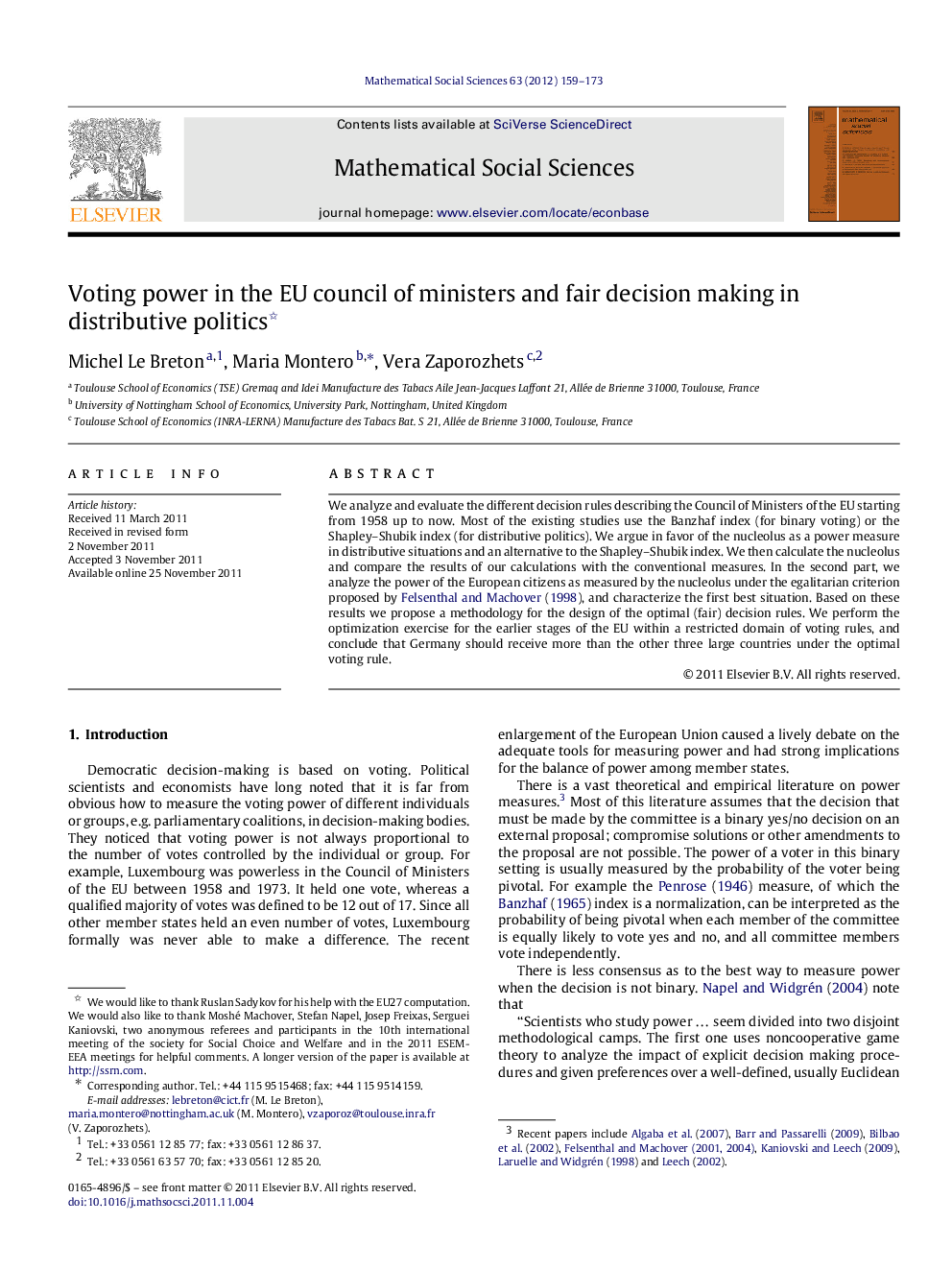| کد مقاله | کد نشریه | سال انتشار | مقاله انگلیسی | نسخه تمام متن |
|---|---|---|---|---|
| 972947 | 932713 | 2012 | 15 صفحه PDF | دانلود رایگان |

We analyze and evaluate the different decision rules describing the Council of Ministers of the EU starting from 1958 up to now. Most of the existing studies use the Banzhaf index (for binary voting) or the Shapley–Shubik index (for distributive politics). We argue in favor of the nucleolus as a power measure in distributive situations and an alternative to the Shapley–Shubik index. We then calculate the nucleolus and compare the results of our calculations with the conventional measures. In the second part, we analyze the power of the European citizens as measured by the nucleolus under the egalitarian criterion proposed by Felsenthal and Machover (1998), and characterize the first best situation. Based on these results we propose a methodology for the design of the optimal (fair) decision rules. We perform the optimization exercise for the earlier stages of the EU within a restricted domain of voting rules, and conclude that Germany should receive more than the other three large countries under the optimalvoting rule.
► The nucleolus arises as equilibrium payoff vector in lobbying and bargaining.
► We analyze the power distribution in the EU according to the nucleolus.
► Germany got too little compared to the other large countries.
► We find the optimal voting rule in a restricted class.
Journal: Mathematical Social Sciences - Volume 63, Issue 2, March 2012, Pages 159–173